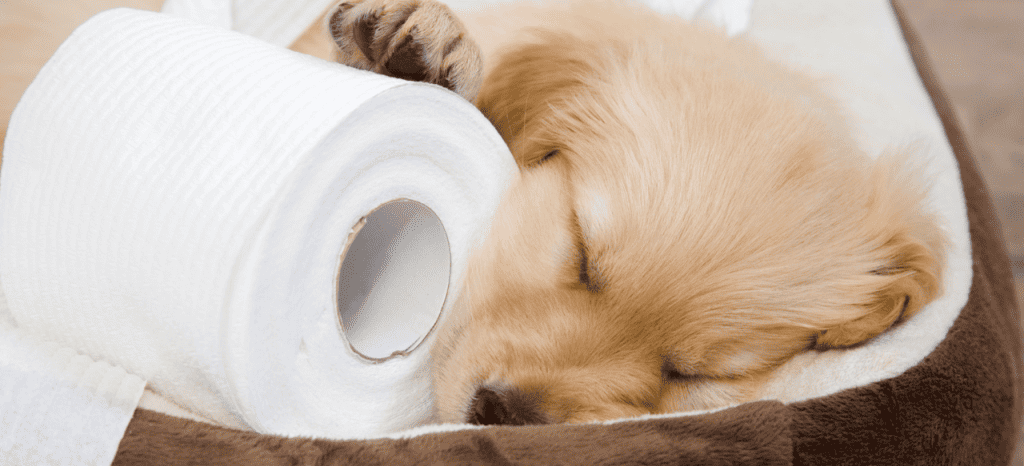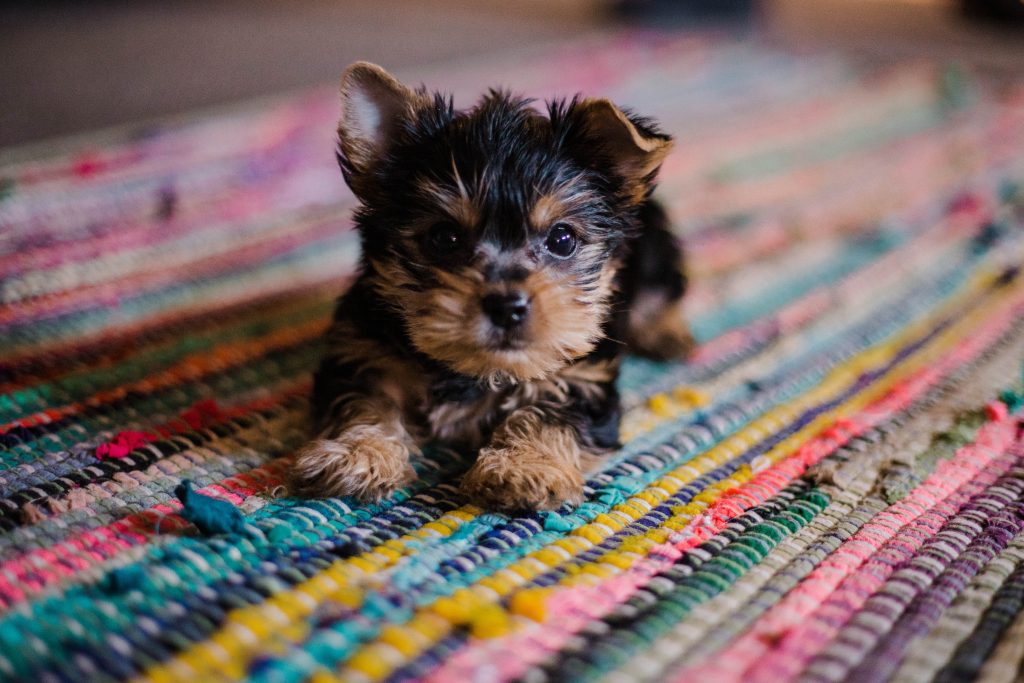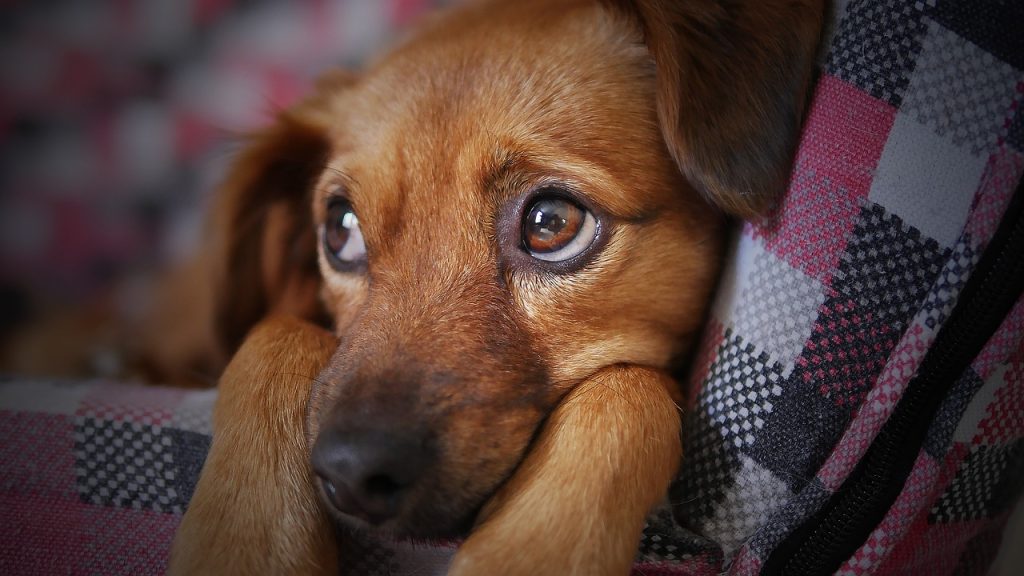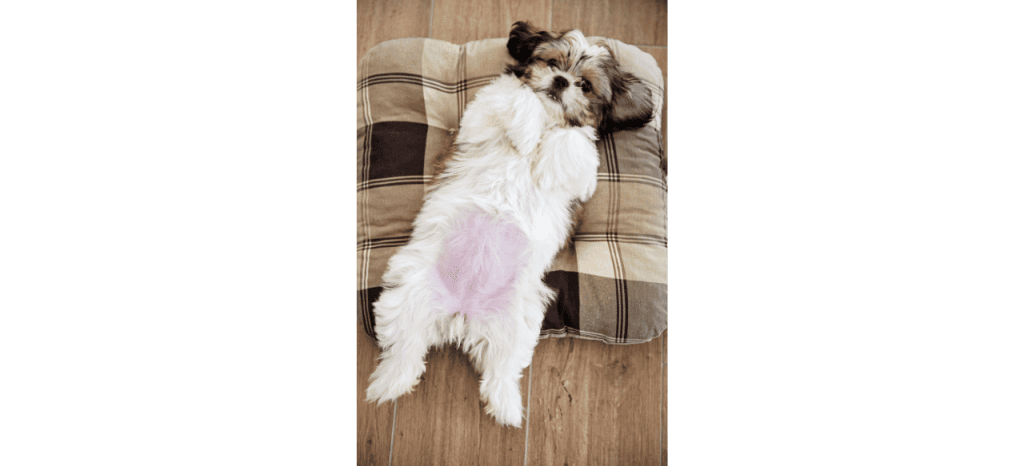I admit it can get frustrating every time my puppy cries when I leave the room. I mean, leaving the room and hearing your puppy’s heart-wrenching cries can be a challenging experience for any pet parent. While it’s completely normal for puppies to exhibit separation anxiety, understanding the reasons behind this behavior is crucial to address and alleviate their distress. In this 2000-word guide, we will explore twenty possible reasons why your puppy cries when you leave the room and offer actionable solutions to help you and your furry friend navigate this difficult phase.
20 Reasons My Puppy Cries When I Leave the Room
1. Natural Instincts
Puppies, due to their evolutionary heritage as pack animals, possess a deeply ingrained instinctual need for proximity to their pack members, with their human caregivers taking on this role. This instinct arises from the ancestral survival strategy of finding safety, social bonds, and collaborative strength within a group. Consequently, when a puppy perceives separation from its human family, it triggers an emotional response rooted in this pack mentality.
This emotional response often manifests as cries, whining, or distress. It’s a plea for reassurance, driven by the fear of isolation and vulnerability that would have been life-threatening in the wild. Understanding this natural instinct illuminates the rationale behind a puppy’s cries when left alone. It underscores the importance of gradually acclimating the puppy to solitude through positive reinforcement, building trust, and creating a secure environment to ease separation anxiety and nurture a happy, well-adjusted companion.

Solution: Gradual desensitization and crate training can help your puppy feel comfortable being apart.
2. Fear of Abandonment
In their early stages of development, puppies need a comprehensive understanding of time and the concept of temporary absence. This cognitive limitation can lead them to experience a profound fear when their human caregiver departs. Your departure may seem like an eternity to a puppy, and they may genuinely worry that you won’t return.
This fear of abandonment is a powerful emotional response, rooted in their instinctual need for security within their pack, which includes you. The anxiety, expressed through whining or crying, serves as a vocal plea for your presence and reassurance. In the puppy’s world, your return symbolizes safety and a restoration of their emotional well-being.
Understanding this emotional basis of their cries when you leave empowers you to address their distress through gradual desensitization and establishing trust. It’s crucial to assure your puppy that you will always come back, gradually reducing their fear of abandonment and promoting a healthier, more secure bond between you and your beloved pet.

Solution: Reassure your puppy with comforting words, and practice short departures to gradually build trust.
3. Lack of Socialization
Insufficient socialization during a puppy’s critical developmental period can profoundly impact their ability to cope with separation. Socialization exposes puppies to various people, animals, environments, and experiences, teaching them to adapt and remain confident in new situations. When puppies miss out on these early socialization opportunities, they become more anxious when left alone, as they haven’t developed the necessary coping skills. The unfamiliarity of being alone amplifies their unease.
To address this, pet parents should prioritize early socialization to build their puppy’s confidence, helping them become more resilient and comfortable when faced with solitude.

Solution: Expose your puppy to new experiences and environments to boost their confidence.
4. New Environment
Transitioning to a new home is a significant life change for a puppy. This shift from their familiar environment to a completely new one can be incredibly unsettling. Puppies thrive on routine and consistency, and the sudden change disrupts their sense of security. They may feel vulnerable and anxious when left alone in this unfamiliar space, leading to distress, whining, or crying.
The key to addressing this issue is creating a welcoming, secure environment in the new home, with familiar scents, comforting toys, and a consistent routine. Over time, as they grow accustomed to their new surroundings, their anxiety, when left alone, will likely diminish.

Solution: Create a safe and welcoming space for your puppy with their bed, toys, and familiar scents.
5. Teething Troubles
Teething is a challenging phase in a puppy’s life, typically between 3 and 6 months of age. During this period, puppies go through a natural process of losing their baby teeth and growing their adult ones. The eruption of these sharp, new teeth can be painful and uncomfortable. Teething puppies may cry or whine when left alone because they seek comfort and reassurance to alleviate the discomfort.
To address this, provide teething toys and appropriate chew items to soothe their sore gums. Ensuring they have comforting distractions can help them manage the pain and reduce their distress when you leave them alone.

Solution: Provide teething toys, soothing chew items, and consider using teething gels to alleviate pain.
6. Boredom
Puppies are curious and active creatures who crave mental stimulation to stay engaged and content. When left alone without mental stimulation, they quickly become bored. This boredom can lead to cries, whining, and destructive behavior as a way to alleviate their restlessness.
To prevent this, pet parents should provide a variety of toys, puzzles, and interactive games to keep their puppy’s mind occupied. Mental stimulation not only helps in reducing their anxiety when left alone but also aids in their overall development and happiness, as it channels their energy into constructive and enriching activities.

Solution: Provide engaging toys and puzzles, and establish a routine with playtime and training.
7. Separation Anxiety
Separation anxiety is a common and genuine concern among puppies, characterized by a deep-seated fear and emotional distress when left alone. This anxiety stems from their innate pack instincts and the strong attachment they form with their human caregivers. When these puppies are separated from their humans, they may experience intense panic and insecurity, believing they might never return. This emotional turmoil often manifests in excessive whining, barking, destructive chewing, and house-soiling.
Addressing separation anxiety is essential for a puppy’s emotional well-being and household peace. Solutions often involve gradual desensitization, counterconditioning, and creating a secure environment. It’s essential to be patient and consistent in these efforts. Ultimately, helping a puppy overcome separation anxiety strengthens the bond between the pet and owner and fosters a sense of security and trust that they’ll always return.

Solution: Gradual departures and counterconditioning can help alleviate separation anxiety.
8. Hunger or Thirst
An empty food or water bowl can lead to cries when a puppy is left alone due to their basic biological needs. Puppies have high metabolism rates and small stomachs, requiring frequent meals and access to water. When deprived of these essentials, they experience physical discomfort and trigger anxiety. The empty bowl is a stark reminder of their unmet needs, which can intensify their sense of abandonment when left alone.
Ensuring that your puppy is well-fed and hydrated before your departure is vital to prevent this issue. This simple step contributes to their physical comfort and emotional security, reducing their distress when alone.

Solution: Ensure your puppy has access to food and water before leaving.
9. Need for the Toilet
A full bladder or bowels can be a significant source of distress for puppies when left alone. Puppies have limited bladder and bowel control and require frequent bathroom breaks. When their needs aren’t met, the physical discomfort escalates, leading to cries and restlessness. Moreover, puppies are naturally inclined to keep their living spaces clean, and soiling their designated area causes them emotional distress.
To alleviate this distress, it’s crucial to establish a consistent potty routine and ensure your puppy has the opportunity to relieve themselves before you leave. This approach prevents physical discomfort and contributes to their emotional well-being and overall housetraining success.

Solution: Take your puppy out for a potty break before you leave and upon your return.
10. Fear of Isolation
As highly social animals, puppies form strong emotional attachments to their human caregivers. When left alone, they may cry out of fear of isolation and separation from their source of comfort, safety, and companionship. This fear stems from their instinct to seek protection within a pack or family unit. In a puppy’s eyes, their caregiver is the leader of their ‘pack,’ and being alone triggers an anxiety response, as it goes against their survival instincts.
To help puppies overcome this fear, gradual desensitization and positive reinforcement training can be employed, gradually building their confidence and teaching them that brief separations are not a cause for alarm.

Solution: Ensure they have access to companionship, either human or another pet.
11. Lack of Training
Untrained puppies often cry when left alone due to confusion and frustration. They lack the understanding of what’s expected during your absence. This confusion can lead to anxiety and insecurity. Puppies, like children, need clear boundaries and guidance to feel secure. Their cries may express their frustration with the uncertainty of the situation.
To address this, consistent, positive reinforcement training is essential. It helps them understand acceptable behavior during your absence, reducing their confusion and fostering a sense of security. A well-trained puppy is more likely to feel comfortable and content when left alone, knowing what to do and expecting your return.

Solution: Consistent, positive reinforcement training can help them understand what’s expected.
12. Uncertainty
In their limited understanding of time and circumstances, Puppies often experience uncertainty when their owners leave. They cannot predict the outcome of your departure, and this unpredictability can lead to cries and anxiety. From their perspective, you disappear, and they cannot guarantee you’ll return, which can be distressing.
Creating a consistent routine and using gradual desensitization techniques help address this uncertainty. By making departures and returns predictable and non-threatening, puppies learn to trust that you will always come back. This trust reduces their uncertainty and lessens their cries, helping them become more comfortable with your absences.

Solution: Consistency and routine can help your puppy feel more secure.
13. Overstimulation
Excessive stimulation before leaving can indeed make your puppy anxious when they’re suddenly alone. Puppies are highly sensitive to their environment; heightened excitement or stimulation can lead to an adrenaline rush. When this energetic peak abruptly ends as you leave, it can leave your puppy feeling disoriented and anxious.
This sudden transition from a high-energy state to solitude can be confusing and distressing for them. Their body and mind are still in a state of excitement, and the abrupt shift to being alone can be unsettling. As a result, your puppy may exhibit anxious behaviors like crying, whining, or pacing.
To address this issue, it’s crucial to gradually wind down playtime and activities before your departure. This helps your puppy transition from a high-energy state to a calmer one, making the shift from your presence to solitude less abrupt and anxiety-inducing. By managing pre-departure stimulation, you can help your puppy feel more at ease when they are left alone.

Solution: Wind down playtime before your departure to help them transition more smoothly.
14. Allergic Reactions
Environmental allergens and food allergies can cause discomfort and, in turn, lead to cries in puppies. Allergic reactions trigger physical discomfort, including itching, skin irritation, and gastrointestinal distress. These discomforts can make puppies restless and anxious. When left alone, they may cry in response to the discomfort they’re experiencing.
It’s important to monitor for signs of allergies, such as itching, redness, or gastrointestinal issues. Addressing these allergies through dietary changes, allergen avoidance, or medication can help alleviate the discomfort and reduce the tendency to cry when separated from their owners. Proper allergy management improves a puppy’s quality of life and fosters a sense of well-being and tranquility during solo periods.

Solution: Consult a veterinarian to rule out allergies and get appropriate treatment.
15. Health Issues
Undiagnosed health problems are a significant factor that can cause puppies to cry when left alone. Unlike adult dogs, puppies have developing immune systems and are more susceptible to various health issues. Pain, discomfort, or illness can manifest as anxiety, restlessness, and vocalization, such as crying. Puppies cannot communicate their physical distress in the same way that humans can, so they may resort to crying as a means of expressing their discomfort and seeking attention.
Thus, if a puppy is crying when left alone, it’s vital to consult with a veterinarian to rule out any underlying health issues. Early diagnosis and treatment can not only alleviate their physical discomfort but also contribute to their emotional well-being and reduce their distress during solo moments.

Solution: Schedule a veterinary check-up to ensure your puppy is healthy.
16. Lack of Exercise
Puppies are bundles of energy, and physical exercise is crucial for their overall well-being. When left alone with unspent energy, they often become restless and anxious. This pent-up energy can manifest as cries, destructive behavior, or excessive pacing. Adequate exercise is not only important for maintaining their physical health but also for their mental and emotional balance.
Regular play, walks, and engaging activities help them release excess energy, promoting a state of contentment and relaxation when they’re alone. A tired puppy is a happy puppy, and it’s essential to ensure they have the opportunity to burn off energy before you leave to minimize distress and anxiety during your absence.

Solution: Daily walks and play sessions are essential to tire them out.
17. Loneliness
Puppies are highly social animals and thrive on physical contact and affection. When you leave and they no longer have the warmth and comfort of your presence, they may feel a profound sense of loneliness. This emotional connection is a vital part of their well-being.
Puppies, like human infants, often find solace in the security of physical touch and closeness. The absence of this physical contact can be emotionally challenging for them, leading to cries, whining, or howling as they yearn for the reassurance of your presence.
Understanding this emotional aspect of their behavior underscores the importance of gentle reassurance and creating a cozy, comforting environment when you’re not around.

Solution: Provide a warm, cozy bed or blanket to replicate the feeling of being close to you.
18. Noisy Environment
Loud noises, the proximity of noisy neighbors, or the presence of other pets can be unsettling for a puppy when left alone. Puppies are sensitive to their surroundings, and unfamiliar or distressing sounds can trigger anxiety. These sounds may startle them, leading to confusion, restlessness, or fear. The presence of other pets, especially if there is tension or territorial behavior, can also contribute to a puppy’s anxiety when left alone.
To address this issue, it’s essential to create a calm and quiet environment for your puppy, potentially using white noise machines, curtains, or background music to muffle external noises and provide a sense of security, helping them feel more at ease during your absence.

Solution: Use white noise machines, curtains, or background music to create a calm environment.
19. Regressive Behavior
Major changes in a puppy’s routine can disrupt their sense of stability, causing regressive behavior like crying. Puppies thrive on predictability and consistency, and any significant shifts in their environment, daily schedule, or family dynamics can be disorienting. Such changes can create uncertainty and insecurity, leading to cries as they seek comfort and reassurance. This regressive behavior is a way for them to cope with the emotional turmoil brought on by these alterations.
In such cases, it’s crucial to provide extra attention, patience, and a return to a familiar routine to help your puppy regain a sense of security and reduce their distress.

Solution: Maintain a consistent routine and offer extra comfort during these periods.
20. Age-Related Factors
Crying when left alone is often more prevalent in younger puppies and tends to decrease with age. Young puppies, in their formative stages, are more likely to exhibit separation anxiety because they are still adapting to their new surroundings, bonding with their caregivers, and learning about the world. As they mature and become more accustomed to your absence, they tend to grow more secure and confident.
With proper training and a consistent routine, many puppies naturally outgrow this behavior as they become more independent and self-assured. However, it’s essential to address separation anxiety early to prevent it from becoming a persistent issue that continues into adulthood.

Solution: Be patient; many puppies grow out of this behavior with time and proper training.
Conclusion
Leaving the room and hearing your puppy cry can be challenging, but with patience, understanding, and the right solutions, you can help your furry friend feel more secure and relaxed when you’re not around. Remember that every puppy is unique, and it may take time to identify the specific causes of their distress. Using the insights and solutions provided in this article, you can nurture a happy and well-adjusted puppy, creating a stronger bond between you and your beloved pet.

